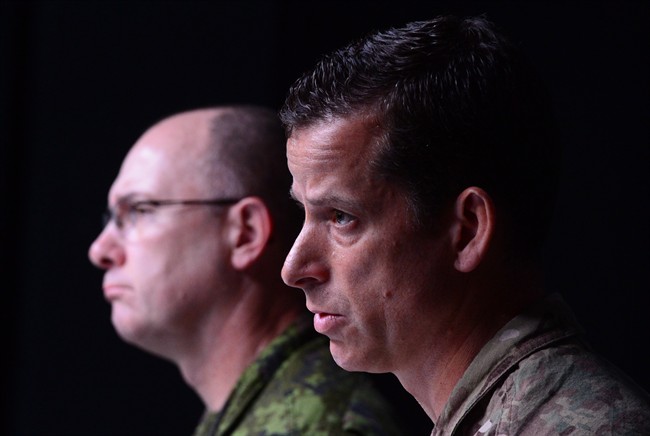OTTAWA – Canada’s elite special forces soldiers risk being run ragged after spending three years deployed in Iraq, as well as in several other lesser-known places around the globe, their deputy commander warns.

That’s why Brig.-Gen. Peter Dawe says the federal government’s plan to add 600 more troops to the ranks of the special forces is not only welcome, it’s necessary, considering the threats Canada faces now — and can expect to face in the future.
“The reality is that we deliver the effects that the government deems appropriate, that they direct us to deliver,” Dawe said in an interview with The Canadian Press.
“And we’ve been doing it for a while, frankly, on borrowed time. We’ve been working our folks very hard. A brutal operational tempo.”
The plan to grow Canada’s special forces is one of the many measures included in the Liberal government’s new defence policy, which promised more than $62 billion in new military spending over the next 20 years.
The expected growth is nothing to sneeze at, given the military currently has only about 2,000 special forces personnel, divided between four different units.
Those include Joint Task Force 2, the Canadian Special Operations Regiment, a special helicopter detachment and a unit that specializes in responding to biological, chemical and nuclear incidents.
Most of the attention since August 2014 has been on their mission in Iraq, where members have been helping Kurdish forces and, more recently, the Iraqi army in their fight against the Islamic State group.
That includes one JTF2 sniper who recently shot and killed an ISIL fighter from more than 3.5 kilometres away, shattering the previous record for longest kill shot.
WATCH: Canadian sniper in Iraq makes longest confirmed kill shot in military history

Dawe said many of his soldiers have done multiple tours in Iraq — a number that is likely to increase after the government announced last week that the military will stay in the country another two years.
But Iraq isn’t the only place where Canadian special forces have been recently operating.
There have also been smaller missions to different parts of Africa, southeast Asia and Central America, where the Canadian soldiers have helped train local forces fighting extremist groups or organized crime.
Such demands for Canadian expertise show no signs of diminishing given the spread of ISIL and other violent extremism to different countries.
“For the most part, much of the work that we do is in the realm of capacity building,” Dawe said.
“When there’s a bit of a violent extremist organization nexus or the need for more generically speaking counter-terrorism sort of capacity, then that’s really sort of our bailiwick.”
Western governments, including Canada, have also increasingly turned to special forces in recent years as a way to intervene in conflicts overseas without having to deploy thousands of troops, like in Afghanistan.
Dawe said his soldiers have successfully and repeatedly demonstrated their professionalism and prowess in Iraq and other parts of the world, but that there are concerns the force is being overworked.
“We’ve done a pretty good job of managing it, I would tell you, but in some areas we need additional depth because we’re not deep enough,” he said.
“When we keep going back to the well for the same sort of capabilities over and over again, it gets very taxing. And not only on the members, but on their families.”
And while adding 600 more soldiers to the mix will go a long way to addressing those concerns, new special forces personnel can’t simply be recruited off the street — suitable candidates need experience and specific skills and traits.
“It’s a complex problem,” Dawe acknowledged, “but one we’re very confident we’ll be able to tackle.”
- Life in the forest: How Stanley Park’s longest resident survived a changing landscape
- ‘Love at first sight’: Snow leopard at Toronto Zoo pregnant for 1st time
- Buzz kill? Gen Z less interested in coffee than older Canadians, survey shows
- Carbon rebate labelling in bank deposits fuelling confusion, minister says



Comments